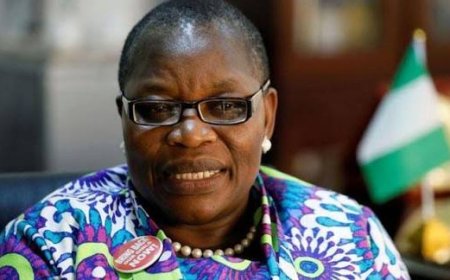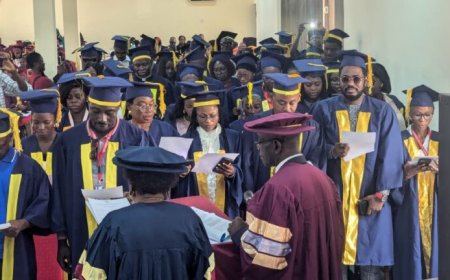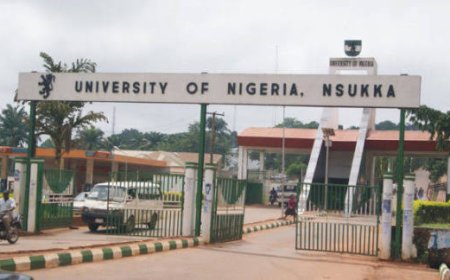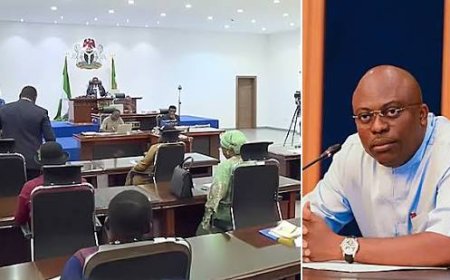By Chris Agbedo
The promise by President-elect Donald Trump to end birthright citizenship as part of his hardline immigration policy has sparked debates across the United States and beyond. While this proposition aims to redefine what it means to be an American, it carries significant implications for immigration globally, particularly for countries in the Global South.
For decades, these nations have grappled with issues that drive their citizens to seek opportunities abroad. The question arises - What can the Global South do to change the narrative and build a system that makes citizenship in their own countries more desirable than seeking it elsewhere?
Trump’s plan, which he asserts will fulfill campaign promises to restrict immigration, faces steep legal hurdles. The 14th Amendment of the U.S. Constitution, which guarantees birthright citizenship, is deeply entrenched in American legal and cultural identity. Changing this provision would require a constitutional amendment or a judicial reinterpretation, a monumental task unlikely to succeed without significant political and public support. Nonetheless, the mere proposal sends a clear message to the world. The United States is becoming increasingly selective about who can claim American identity.
But what does this policy signify for the Global South, whose citizens often dominate the immigrant population in the United States? The message is clear. Citizenship in the Global North is no longer guaranteed or easily attainable, even for those born on its soil. This shift, though challenging, presents an opportunity for introspection for the nations of the Global South.
Migration from the Global South is driven by systemic issues, including but not limited to poverty, lack of opportunity, political instability, and weak governance. For many, migrating to countries like the United States offers a pathway to better living standards, security, and opportunities for future generations. Nigeria, for instance, has seen a significant brain drain as skilled professionals leave for better prospects abroad. This phenomenon reflects both the pull of opportunities in the Global North and the push factors of inadequate systems in the Global South.
Despite the aspirations of migrants, their journeys often come with immense challenges such as legal battles, cultural adjustments, and in some cases, exploitation. Policies like Trump's proposed end to birthright citizenship amplify these difficulties and raise questions about the responsibility of home countries to address the root causes of emigration.
Birthright citizenship, which grants automatic citizenship to anyone born within a country's borders, has long been a hallmark of inclusive nation-building in the Americas. Its potential abolition represents a retreat from inclusivity and underscores a growing divide between the Global North and South. For citizens of the Global South, the barriers to migration are steadily rising, pushing them to reconsider their aspirations and opportunities.
The discourse surrounding Trump’s proposal highlights a paradox. While countries in the Global North are restricting immigration, nations in the Global South continue to experience governance failures that drive their citizens abroad. This imbalance perpetuates cycles of migration.
Let's be clear about this call to action. Governments in the Global South must prioritize building systems that make their nations attractive places to live, work, and thrive. This begins with the institutionalization of good governance, which is a model rooted in accountability, transparency, and inclusivity.
A major driver of migration is the lack of economic opportunities in the Global South. Governments must invest in creating sustainable industries, modernizing infrastructure, and fostering entrepreneurship. When citizens see tangible pathways to success within their own countries, the allure of emigrating diminishes.
Access to quality education and healthcare is non-negotiable for national development. By prioritizing these sectors, countries can equip their citizens with the skills and well-being necessary to contribute meaningfully to their economies. A well-educated, healthy population is less likely to seek opportunities abroad.
Many nations in the Global South are plagued by political corruption, weak institutions, and a lack of rule of law. Strengthening democratic processes, ensuring judicial independence, and combating corruption are critical steps in building trust and stability. When citizens feel secure and confident in their governments, they are less inclined to seek stability elsewhere.
Marginalized groups often bear the brunt of systemic failures, fueling discontent and migration. Policies that promote social equity, protect human rights, and ensure inclusion can foster a sense of belonging and loyalty to one’s nation.
The Global South must also redefine its relationship with the Global North. By fostering partnerships that emphasize mutual benefit rather than dependency, these nations can attract investment, technology, and expertise. This approach can shift the narrative from being sources of emigration to becoming hubs of innovation and opportunity.
Citizenship is more than a legal status; it is an identity tied to belonging, opportunity, and pride. For citizens of the Global South, the appeal of foreign citizenship often stems from a perception that their home nations cannot offer these qualities. Changing this perception requires a concerted effort to showcase the potential and achievements of these countries.
Governments can play a key role by celebrating national achievements, promoting cultural heritage, and fostering a sense of collective identity. The media, education systems, and public policies must work together to instill pride and confidence in citizens. When people see their countries as places of opportunity and innovation, the desire to seek citizenship elsewhere diminishes.
The discourse surrounding Trump’s immigration policies should serve as a wake-up call for the Global South. While restrictive policies in the Global North create challenges for migrants, they also highlight the need for self-reliance and reform in the countries migrants leave behind. Rather than focusing solely on the barriers abroad, governments in the Global South must address the root causes of migration by institutionalizing good governance and creating environments where citizens can thrive.
The Global South holds immense potential. By investing in its people, systems, and institutions, it can transform itself from a region of outmigration to a beacon of opportunity. This transformation will not only retain its citizens but also attract talent and investment from around the world. In doing so, the nations of the Global South can reclaim citizenship as a source of pride and redefine their place in the global order.


































































